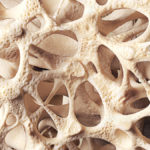By Bonnie Jenkins, Advanced Natural Wellness
You know that I believe most of the signs of aging are triggered by lifestyle choices. You choose to eat healthy or you don’t. You choose to stay fit or you don’t. You choose to make time for sleep and fun or you don’t.
In the fight against aging, there are a few must-have supplements. These are the hard-hitters, the supplements that really take it to aging on a lot of levels. You’re familiar with some of them, I bet. Omega-3 essential fatty acids. Resveratrol. Coenzyme Q10.
But did you know that vitamin B6 is on that list? Vitamin B6 may not be exotic, but when it comes to fighting aging, it’s a powerful tool to keep in your arsenal.
Let’s take a look at what the studies say about vitamin B6 and aging in your body.
At the Heart of Aging
Glycation is a culprit in many of the diseases we associate with aging. Glycation happens when dietary sugars become cross-linked with proteins. The cross-linked proteins are also known as Age-related Glycation End products or AGEs—isn’t that fitting? They do a lot of damage, especially to your organs.
Glycation contributes to heart disease by damaging endothelial cells. It contributes to declining kidney function. It can lead to cataracts. It can cause complications in diabetes patients. It contributes to the wrinkling and tone loss of your skin. In short, glycation ages your body.
Glycation also causes low-level, chronic inflammation. This kind of inflammation has been linked as a contributing factor in many diseases such as heart disease, many kinds of arthritis and Alzheimer’s.
Fortunately, there’s a great way to reduce and reverse the glycation in your body, and doing so will slow down the aging process throughout your system.
Winning the Fight Against Glycation
The World's Quickest Solution for Ending Prostate and Urinary Misery
This has recently been revealed to be one of the only real breakthroughs in prostate health.
The seeds of a strange fruit (sometimes called "Chinese Apples") hold powerful phytonutrients that are a revolution in prostate health.
In fact, UCLA and Veterans Administration research have now proved this to be true.
Not only that, but it may be the worlds quickest solution for ending prostate misery.
Simply stated, these phytonutrients represent a huge step beyond beta sitosterol, saw palmetto, and other phytosterols alone.
Simply click HERE if you want to have fast prostate relief...restful, uninterrupted sleep...no more constant "urges to go"...enhanced virility...and optimal prostate support for life.
There’s no magic bullet when it comes to slowing down your body’s aging process. There are many different factors to consider, but glycation is a major one. If you can slow or reverse the glycation process in your body, it will be a huge anti-aging win for you.
Vitamin B6 plays an important role in helping you beat glycation and stay looking and feeling your best. Two specific forms of vitamin B6 work best. One is pyridoxamine and the other is pyridoxal-5’-phosphate. A pharmaceutical company recently found success in petitioning the FDA to re-categorize pyridoxamine as a drug rather than a dietary supplement, so it will cease to be readily available.
Fortunately, pyridoxal-5’-phosphate is very powerful when it comes to fighting glycation. It works in two ways. First, it helps prevent the formation of new AGEs in your body. Second, it will actually bind with existing AGEs and help eliminate them from your body.
This provides anti-aging benefits to many of your body’s systems:
- Glycation is associated with the development of kidney disease. Vitamin B6 successfully slows the progression of both glycation and kidney disease in diabetic patients at high risk.
- Glycation can lead to cataracts, but studies show that vitamin B6 can prevent cataracts from forming.
- Researchers believe that glycation may play a significant role in the development of Alzheimer’s. People with Alzheimer’s disease are 12 times as likely to have a pyridoxal-5’-phosphate deficiency than people with normal cognitive function.
Vitamin B6 in the form of pyridoxal-5’-phosphate can help to prevent AGEs from forming in your body and damaging your vital systems. It can even eliminate existing AGEs, stopping them from doing additional damage and helping to repair existing damage. While vitamin B6 may sound a little pedestrian, it is vital to your success if you want to slow the aging process. Look for a supplement containing pyridoxal-5’-phosphate and take 50 mg daily to give your body a strong defense against aging.
References:
Goepp, Julius. “Report: B6 Vitamers,” Life Extension Magazine. 07/2009
Williams ME, et al. “Effects of pyridoxamine in combined phase 2 studies of patients with type 1 and type 2 diabetes and overt nephropathy,” Am J Nephrol 2007; 27(6): 605-14.
Chen AS, et al. “Pyridoxal-aminoguanidine adduct is more effective than aminoguanidine in preventing neuropathy and cataract in diabetic rats,” Horm Metab Res 2004; 36(3): 183-87.
Glaso M, et al. “Reduced concentrations of several vitamins in normal weight patients with late-onset dementia of the Alzheimer type without vascular disease,” J Nutr Health Aging 2004; 8(5): 407-13






